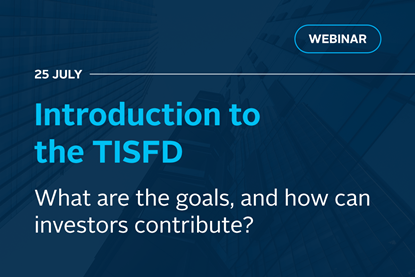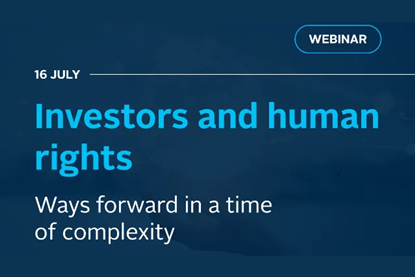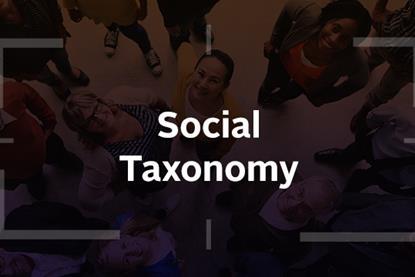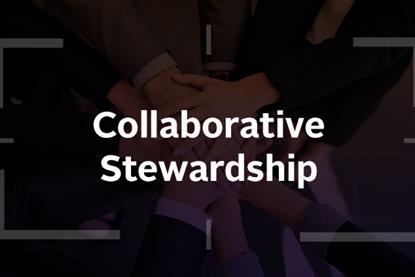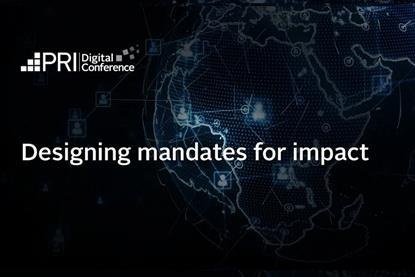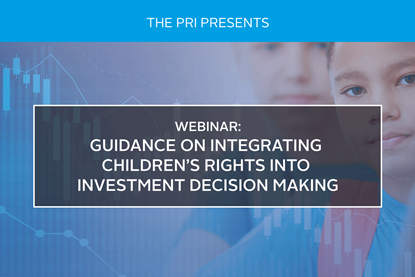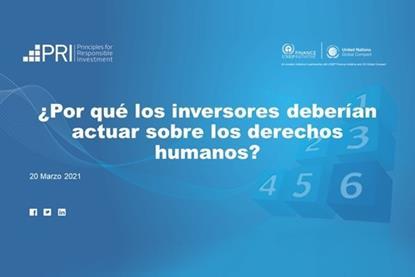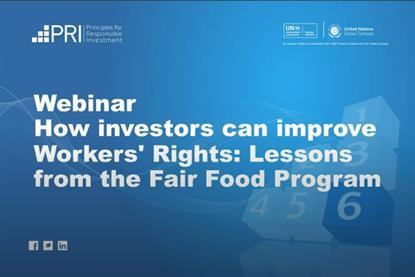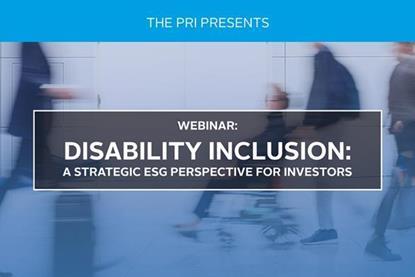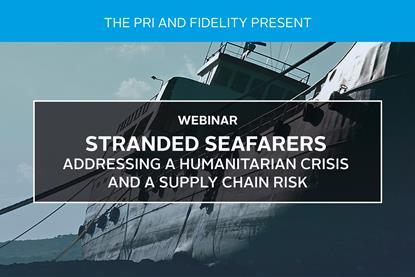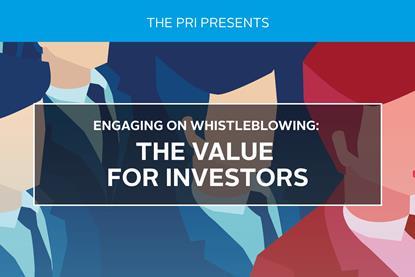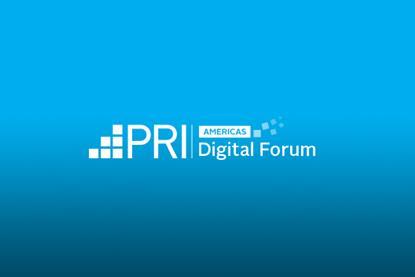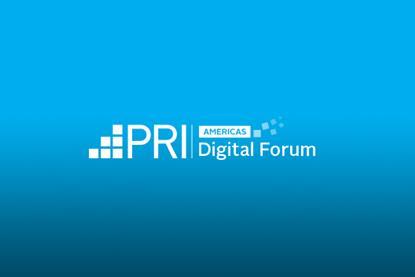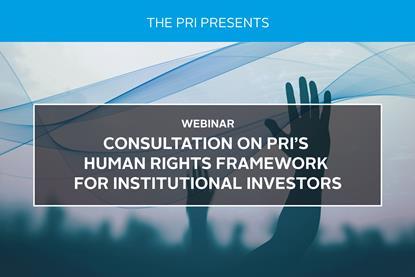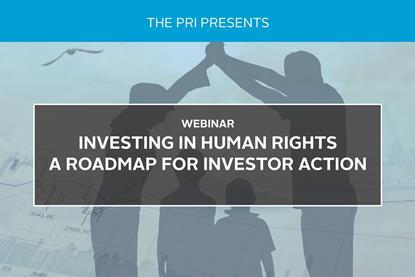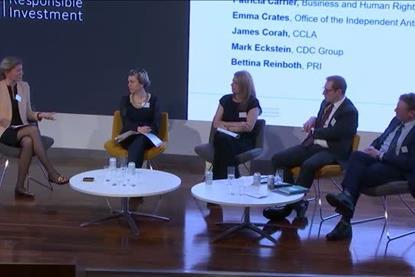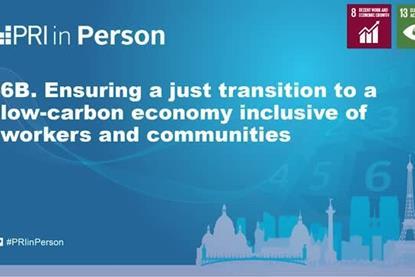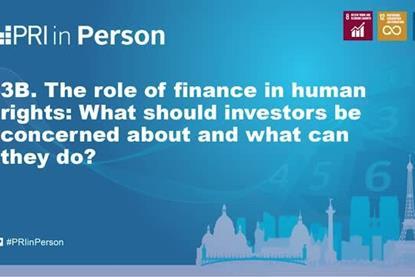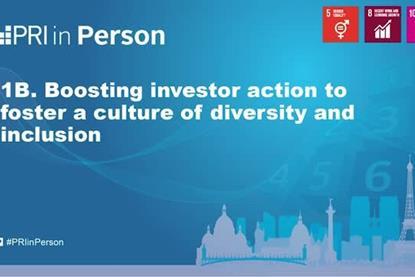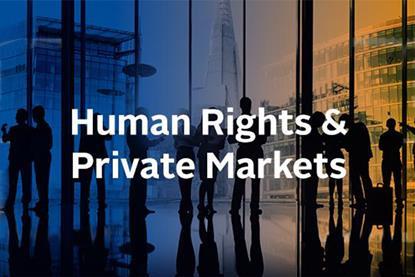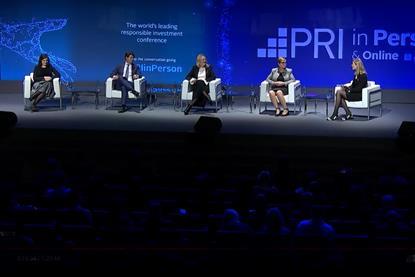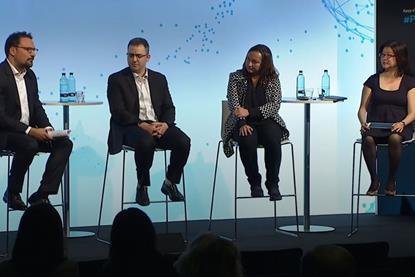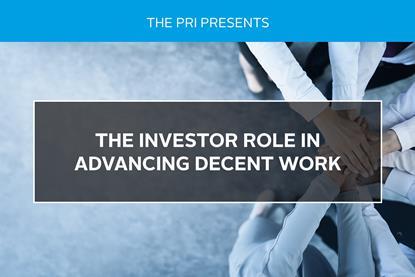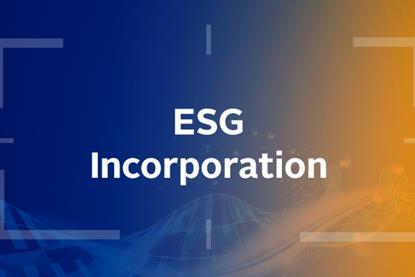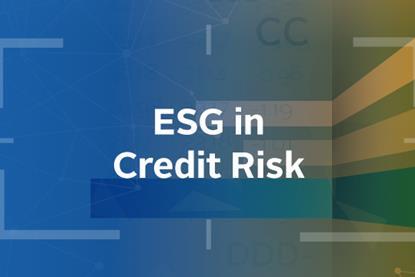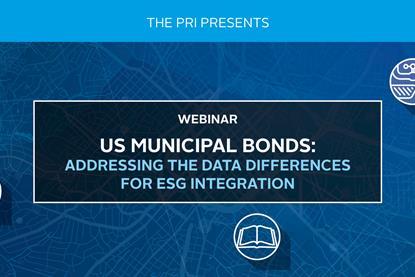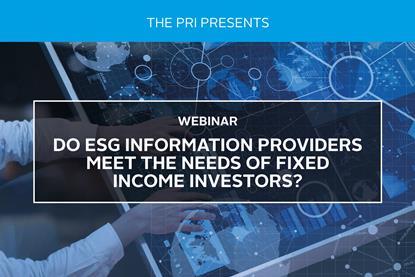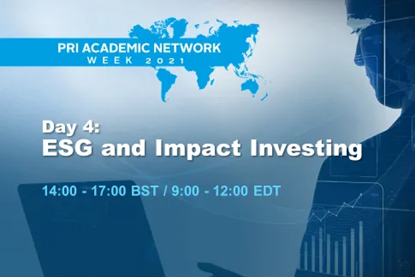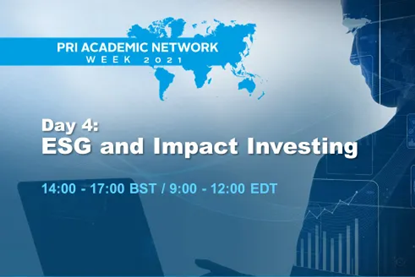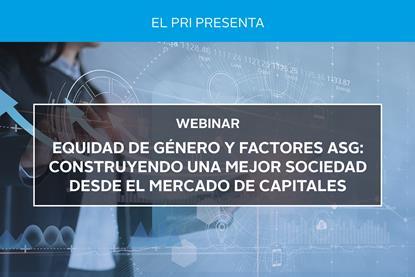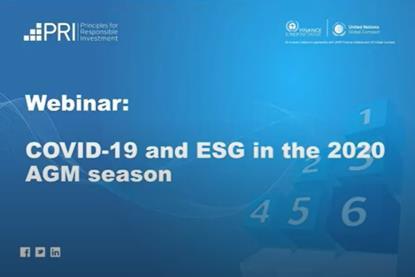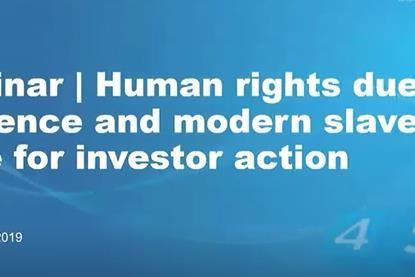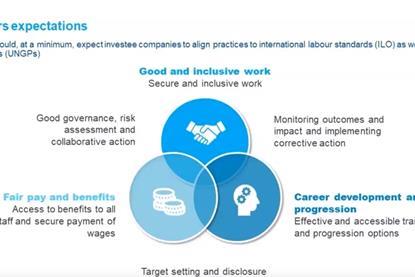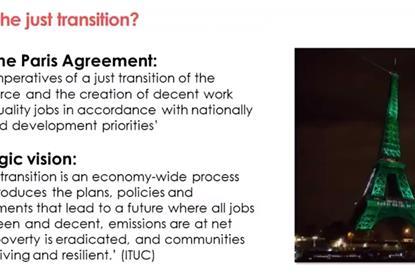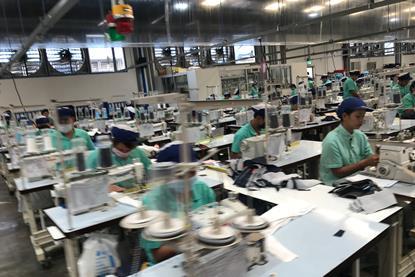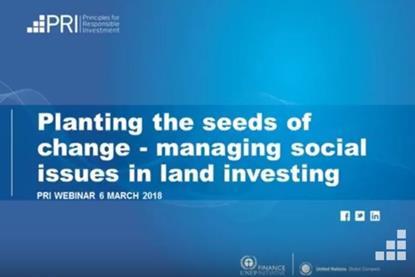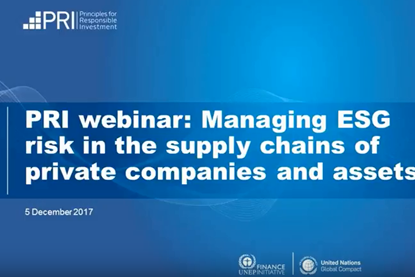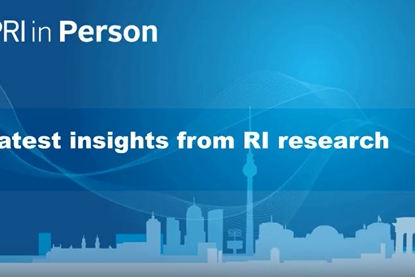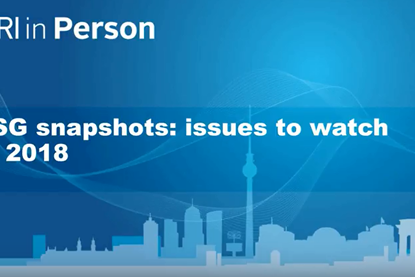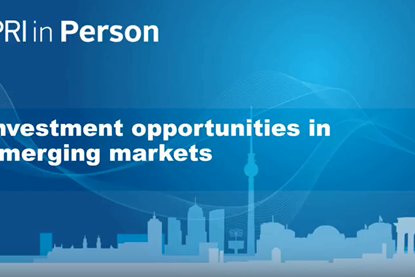Social issues - webinars
Introduction to the TISFD: What are the goals, and how can investors contribute?
The Taskforce on Inequality and Social-related Financial Disclosures (TISFD) was introduced by its steering committee, followed by a panel discussion and Q&A.
Investors and human rights: Ways forward in a time of complexity
Presented by the PRI and UN Working Group on Business and Human Rights.
Human rights due diligence: how should investors identify and prioritise risks?
We will bring together different voices to discuss how investors should, in practice, identify and act on human rights risks. What systematic approaches are being taken by investors? What challenges and limitations exist, and how can they be addressed?
What is a social taxonomy and why do investors need one?
Against the backdrop of the EU Platform on Sustainable Finance’s new report on the design of a social taxonomy, the panel will discuss the key ideas behind extending the Taxonomy Regulation to cover social objectives, as well as the merits and concerns of which investors should be aware.
Responsible investment in times of conflict: the social implications
In this session, we will bring together different voices to highlight and discuss the social and human rights implications of conflict.
Spotlight on infrastructure: integrating social issues
This session will explore these issues in relation to the energy transition, and the tools available for emerging market investors to take action in order to address them.
Using investor stewardship to tackle human rights and social issues
This session will explore how investors can collectively contribute to advancing the human rights agenda through their stewardship activities.
How investors can strengthen health equity: lessons learned from the pandemic
This session will cover lessons learned from the pandemic and the solutions investors need to work towards to ensure universal access to health.
PRI Digital Forum: Americas - Keynote address: human rights
Keynote address from John Ruggie, Berthold Beitz Research Professor in Human Rights and International Affairs, Harvard Kennedy School
PRI Digital Conference: Designing mandates for impact
This session will explore some of the challenges and opportunities for both asset owners and investment consultants to take the next step in incorporating outcomes into the design of mandates.
PRI Digital Forum : EMEA - Human rights: an investor framework
This session will discuss some of the common misconceptions around human rights within the investment community, and clarify investor responsibilities.
Social factors as a credit risk: the example of the pharmaceutical industry
This webinar explores how social factors can affect credit risk analysis, using the pharmaceutical industry as an example, given its high exposure to social risks related to customer relations, responsible production, equal access to products and services, demographic and societal trends.
Guidance on Integrating Children’s Rights into Investment Decision Making
UNICEF and Sustainalytics have recently launched an investor guidance on how to integrate children’s rights into investment decision making. During this webinar you will have the opportunity to hear from the authors, how the guide came about and how investors can make the best use of it in understanding the ...
¿Por qué los inversores deberían actuar sobre los derechos humanos?
In this webinar we will discuss how inverters can frame the topic and begin their journey towards integration. Further, we will count on the hands-on experience of local and global organisations regarding Human Rights integration, trends and integration models.
How Investors can Improve Workers’ Rights: Lessons from the Fair Food Program
This webinar will explore how WSR has transformed the lives of those involved and outline how investors can support the drive to protect the workers in corporate supply chains.
Disability Inclusion: a strategic ESG perspective for investors
This webinar will explore disability inclusion in the workplace as a critical social issue for investors which needs to be examined with a strategic perceptive, mitigating risks and realising the opportunities that disability brings. The speakers will discuss increasing evidence that embracing equality and diversity contributes to the long-term success ...
Stranded Seafarers - Addressing a Humanitarian Crisis and a Supply Chain Risk
This webinar jointly organised by the PRI and Fidelity will be an opportunity to discuss and call for urgent action around the humanitarian crisis and the supply chain risk in relation to the more than 400,000 seafarers.
Engaging on Whistleblowing: The Value for Investors
This webinar will explore the relevance of whistleblowing for investors and launch the PRI engagement guidance on whistleblowing. The discussion will cover the investor perspective, implications of recent regulatory developments such as the EU Whistleblower Protection Directive, and include perspectives from a former whistleblower.
PRI Digital Forum: Americas - Breakout 1B: Human rights
This session will focus on identifying and remedying human rights violations in private equity portfolios.
PRI Digital Forum: Americas - Diversity, equity and inclusion
This webinar addresses the myth of meritocracy in hiring and promotion practices.
PRI Digital Forum: EMEA - Breakout 2B. Africa's Just Transition in practice
This session will discuss the challenges and opportunities of a just transition for Africa, with reflections from the continent and beyond.
Consultation on PRI’s Human Rights Framework for Institutional Investors
The responsibility of institutional investors to respect human rights is reflected in international human rights standards, and constitute a universal, normative expectation by employees, beneficiaries, clients, governments, and wider society.
Investing in human rights: a roadmap for investor action
This webinar will explore the responsibilities of institutional investors to respect human rights, and how this can be implemented in practice by exploring the recently launched Investor Toolkit prepared by the Investor Alliance on Human Rights.
PRI London Forum - Finance Against Modern Slavery and Human Trafficking
This video explores the implications for investors of a strengthened UK Modern Slavery Act, and discuss best practices for engaging with companies on this critical issue.
PIP19 -Ensuring a just transition to a low-carbon economy
The shift to a resilient, low-carbon economy will boost prosperity and be a net driver of job creation. However, there will be transitional challenges for workers, communities and countries if this shift is not inclusive and sustainable. In this session we will discuss:• what a just transition means in practice, ...
PIP19 - Finance in human rights: What should investors do / be concerned about?
As the investment community increasingly recognises it has a role to play in ensuring that investee companies are addressing human rights issues, this session will:• outline the relevance of human rights due diligence to investors;• explore the avenues through which investors can facilitate real-world positive impact;• discuss how investors can ...
PIP19 - Boosting investor action to foster a culture of diversity and inclusion
With diversity increasingly recognised as beneficial for businesses and in turn investments, this session will identify the lessons learnt and the impact of current initiatives to achieve a more diverse workforce, including:• why investors should care about diversity, and how to think of other strands beyond gender;• how investors can ...
Practical approaches to human rights due diligence in private markets
This session will examine the different approaches private markets investors are taking to human rights due diligence.
Understanding how US agencies consider ESG factors in commercial mortgages: Freddie Mac Multifamily
This series of two webinars will explore the US agencies’ approach in incorporating ESG factors in their strategy, in order to enable a sustainable housing market. This second session will focus on Freddie Mac Multifamily’s approach.
Understanding how US agencies consider ESG factors in residential mortgages: Fannie Mae Single Family
This series of two webinars will explore the US agencies’ approach in incorporating ESG factors in their strategy, in order to enable a sustainable housing market. This first session will focus on Fannie Mae Single Family’s approach.
PRI in Person 2022: Using stewardship to tackle human rights issues in metals & mining and renewables
Hear about the plans and strategy for the first phase of Advance – PRI’s new collaborative stewardship initiative on human rights and social issues, where engagement has begun with the metals & mining and renewables sectors.
PRI in Person 2022: Advancing investor action on human rights and social issues
How can investors take action on human rights and social issues in line with international human rights standards, and in line with a rapidly evolving existing and anticipated regulatory environment?
Academic Network Conference: PRI Awards for outstanding research
Papers discussed: ‘Socially responsible divestment’ and ‘Physical climate risk and firms’ adaptation strategy’.
PRI in a Changing World signatory consultation webinar
Chief Responsible Investment Officer, Nathan Fabian, briefed signatories on why the PRI conducted the consultation and provided information on the formal signatory survey, including key themes and questions.
PRI - Real Estate Update - Q4 2022
Join us for updates on the Q4 2022 release of the PRI Real Estate programme and hear about recent and upcoming guidance from experts.
Nature as a Defense from Disasters: Natural Capital and Municipal Bond Yields
The PRI Academic Network Week was hosted across five days between 19 – 23 September 2022.
The investor role in advancing decent work
This session will explore how and why investors should act on advancing the decent work agenda. It will focus on how the pandemic has exacerbated many of the pre-existing challenges, what minimum safeguards are needed to support decent work and how investors can harness the key transitions to support workers ...
Market review: trends in ESG incorporation
In this session the panelists will explore key trends in ESG investing observed.
ESG in credit risk and ratings: Modelling uncertainty in credit risk
This webinar, organised as part of the ESG in Credit Risk and Ratings Initiative, explores the differences between forecasts and scenario analysis, in particular, how to consider different time horizons in credit risk assessments.
Transforming responsible investment beliefs into action
This session will examine the journey and main challenges asset owners face when moving from beliefs into action.
Venture Capital: how should ESG be adapted for the asset class
Following the publication of the PRI’s discussion paper on responsible investment in venture capital in January, this session will explore why ESG in the asset class needs to develop further and how it can be appropriately tailored to early-stage companies.
Investor action on antimicrobial resistance: achievements & opportunities ahead
This session, which is part of World Antimicrobial Awareness Week, will provide a comprehensive update on the progress of the IAoAMR Initiative and recent efforts from the investor community to address AMR using a ‘One Health’ approach. The event will offer an opportunity to discuss the latest efforts to quantify ...
US municipal bonds: addressing the data differences for ESG integration
Does the ESG data used by investors to assess US municipal and corporate bonds differ, and is there enough self-reported issuer data available? Which ESG risk area has the biggest data limitations, and what role could bondholder engagement play in enhancing data disclosure? Featuring a muni bond issuer, an investor ...
Do ESG information providers meet the needs of fixed income investors?
This webinar presents the main conclusions of discussions between credit analysts and ESG information providers of different specialism and scope, on how useful their data and service offerings are for fixed income investors, how the current products are evolving and where gaps remain.
ESG factors and municipal bond yields
The PRI Academic Network Week was hosted across five days between 13-17 September 2021.
The Risk and Return of Impact Investing Funds
The PRI Academic Network Week was hosted across five days between 13-17 September 2021
On ESG investing: heterogeneous preferences, information, and asset prices
The PRI Academic Network Week was hosted across five days between 13-17 September 2021
Amplifying the S in ESG: Investor Myth Buster
This webinar will bring together representatives of the Working Group and endorsers to discuss the different ‘myths’, the real challenges in tackling the S of ESG but also providing clear next steps for investor action.
Sustainable and Healthy Food Systems: Considering the E and the S of ESG
This webinar will discuss investment risks from nature loss to malnutrition, on the one hand, and opportunities arising from sustainable agriculture and healthier diets, on the other. Critical to the delivery of the SDGs agenda, food systems represent a material concern for responsible investors.
Equidad de Género y factores ASG: construyendo una mejor sociedad desde el mercado de capitales
Junto con la iniciativa Women in Connection abordaremos la importancia de la equidad de género y los factores ASG en la promoción de la inversión responsable en América Latina.
All in the same storm but not in the same boat – protecting workers’ rights through the COVID-19 crisis
this webinar, will explore the range of risks different categories of workers have been exposed since the beginning of the pandemic and address how investors can contribute to ensuring jobs, workers and their rights are protected and respected in the midst of the crisis.
COVID-19 and ESG in the 2020 AGM season
Join this webinar to hear from Fiona Reynolds, CEO at the PRI, and investor speakers for an overview of the questions investors should raise on ESG issues during this year’s AGM season in response to COVID-19.
Human rights due diligence and modern slavery: the case for investor action
This webinar will explore how investors can play a role in pushing for more and better human rights due diligence and will focus in particular on efforts to tackle modern slavery and human trafficking. Speakers from the UN Working Group on Business and Human Rights, the World Business Council for ...
Labour rights in infrastructure investing
In this webinar, the PRI, IFM Investors and the Committee on Workers’ Capital discussed key issues and different approaches to managing labour issues in infrastructure investing, and particularly sought to highlight how greater engagement between core stakeholders on these issues can be a critical success factor for different infrastructure projects.
Webinar: investors take action for a fast and fair transition to a low-carbon economy
Investment in renewable energy is paramount to combat climate change – but how can we ensure that investment that is good for our planet will also be good for people?
Webinar: PRI and Investor Alliance: Labour rights in apparel supply chains – quo vadis
This webinar, hosted by the PRI and The Investor Alliance, discusses how investors can use two recent benchmarks published by The Corporate Human Rights Benchmark and KnowTheChain to assess companies in their portfolios. Adidas shares practical examples of how to ensure labour rights protection in challenging contexts and lower tiers ...
Webinar: how to prevent child exploitation online
The PRI hosted a webinar to explore the issue of child sexual exploitation online and how investors can engage with ICT companies on this issue. During the webinar speakers took the opportunity to discuss the issues related to the governance of ICT companies and their role in protecting users, of ...
Planting the seeds of change: managing social issues in land investing
The PRI’s webinar Planting the seeds of change: managing social issues in land investing explores why investors should consider land issues and learn about the Reference Guide for Risk Assessment in relation to land.
Managing ESG risks in the supply chains of private companies and assets
This webinar provides an overview of PRI’s guidance on Managing ESG risk in the supply chains of private companies and assets; as well as a discussion on engaging with portfolio companies to understand and mitigate ESG risks in the supply chain.
PRI in Person 2017 - Latest insights from RI research
Prize winning research will be presented from the PRI Awards and the FIR-PRI Finance and Sustainability Awards.
PRI in Person 2017 - ESG snapshots: issues to watch in 2018
This session will briefly explore a series of trends and emerging ESG issues across sectors. Issues to be discussed will include deforestation and its link to cattle production, the impact of sugar on health, blockchain, and the recent phenomenon of fake news. Delegates can expect an interactive session which will ...
PRI in Person 2017 - Investment opportunities in emerging markets
The focus of this session is to outline the investment opportunities in emerging markets and how to scale up impact investments in these markets.
PRI in Person 2017: Social cohesion and inclusive growth - the investment risks and opportunities
With forms of economic inequality rising, we have seen increasing political instability and social unrest. Populism and fragmentation are sources of tension, and the migrant crisis is a critical concern around the world.


